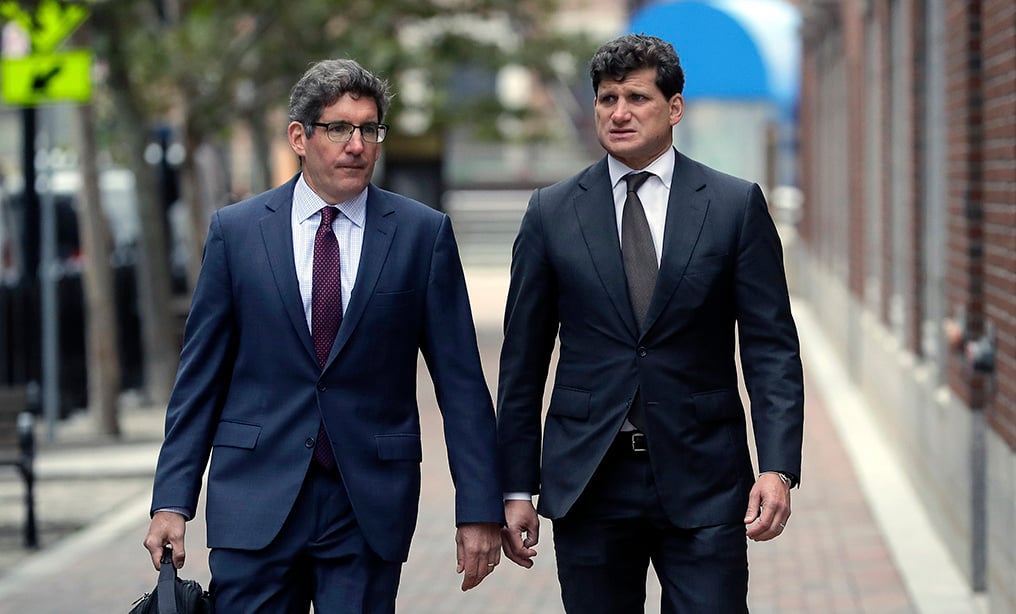Gordon Caplan, the former co-chairman of Willkie, Farr & Gallagher, was sentenced to one month in federal prison Thursday for paying a college admissions consultant to rig his daughter’s ACT score.
U.S. District Judge Indira Talwani of the District of Massachusetts said the interests of general deterrence drove the need for Caplan to serve time behind bars. The sentence was below the eight months prosecutors asked for, but dashed Caplan’s hopes for a noncustodial sentence.

 Gordon Caplan, right, joined by his attorney Joshua Levy of Ropes & Gray, arrives at federal court in Boston on Thursday, Oct. 3, for sentencing in a nationwide college admissions bribery scandal. Photo: Steven Senne/AP
Gordon Caplan, right, joined by his attorney Joshua Levy of Ropes & Gray, arrives at federal court in Boston on Thursday, Oct. 3, for sentencing in a nationwide college admissions bribery scandal. Photo: Steven Senne/AP








